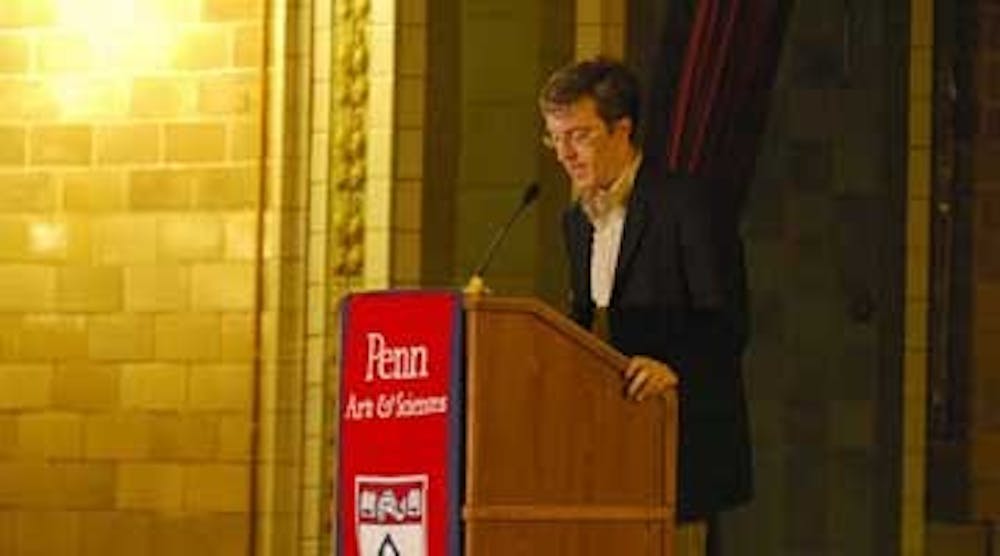
What do Sumo wrestlers and schoolteachers have in common? Why do crack cocaine dealers live with their mothers?
Steven Levitt has the answers.
In continuing with his style of analyzing questions from an unconventional perspective, Freakonomics author Steven Levitt gave a lecture at the Penn Museum yesterday entitled "Beyond Freakonomics."
Introducing Levitt to the audience, Dean of the School of Arts and Sciences Rebecca Bushnell said, "His level of celebrity can only be [unusual] among academics." The award-winning economist is probably best known for his book, which spent over two years on the New York Times best-seller list.
Yesterday, Levitt spoke about how he came up with his questions, jokingly saying that developing two brilliant ideas a year over a span of eight years leads to a book. He then commented on his view that math is not required to be a successful economist.
He said, "If you are not as good at doing something as everybody else, you have to be different," justifying his unique approach to economics.
But Levitt cautioned the audience that he was very fortunate to be successful in his field and that instead of trying to be an empirical economist focussing on subjects with popular appeal, audience members "should find another profession."
Levitt spoke at length about his most controversial paper, which showed a link between legalizing abortion and a drop in crime rates. He said that although the paper was based on "pretty strong evidence," he managed to offend nearly "every person on the planet." He shared how one critic even said that the "only good abortion is an abortion of an economist."
At the end of the lecture, Levitt asserted that the driving force behind the world is self-interest. He went on to use analysis from Dictator and Ultimatum games to speak about human nature across cultures.
Engineering freshman Aditya Shah said, "the best part of the lecture was when he explained the Dictator and Ultimatum games and analyzed their results with respect to an experimental setting and a real life situation."
The well-attended lecture was part of the annual Goldstone Forum sponsored by Penn's Philosophy, Politics and Economics Program.
Levitt holds a B.A. in Economics from Harvard University and a Ph.D. in Economics from the Massachusetts Institute of Technology, and is the Alvin H. Baum Professor of Economics and director of The Becker Center on Chicago Price Theory at the University of Chicago.
The Daily Pennsylvanian is an independent, student-run newspaper. Please consider making a donation to support the coverage that shapes the University. Your generosity ensures a future of strong journalism at Penn.
DonatePlease note All comments are eligible for publication in The Daily Pennsylvanian.




